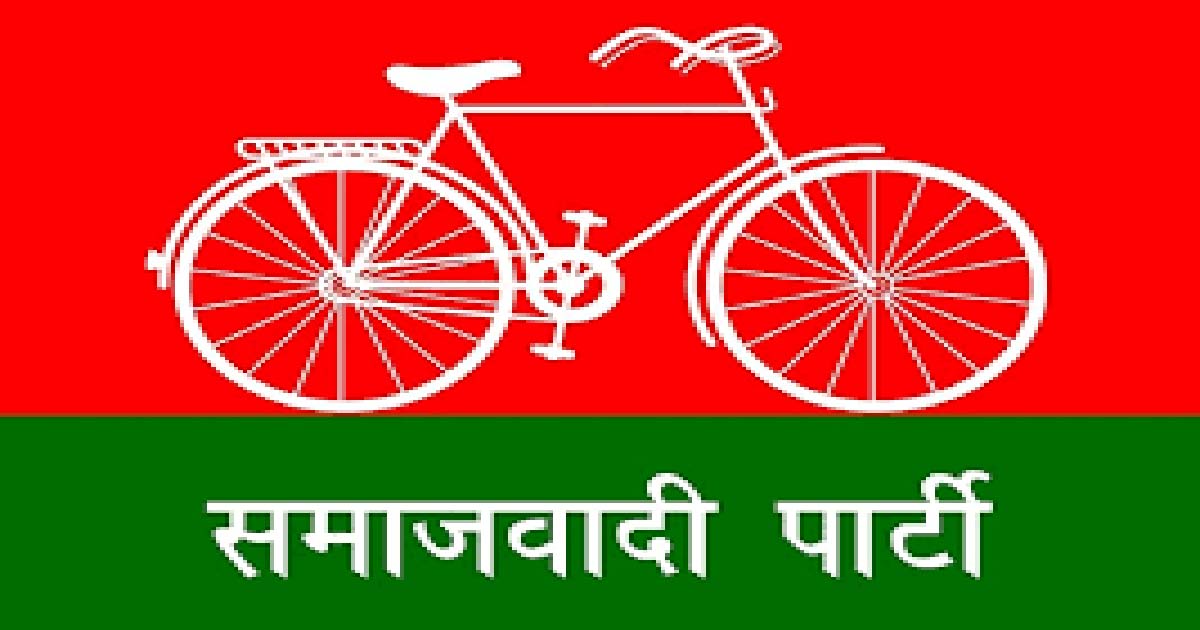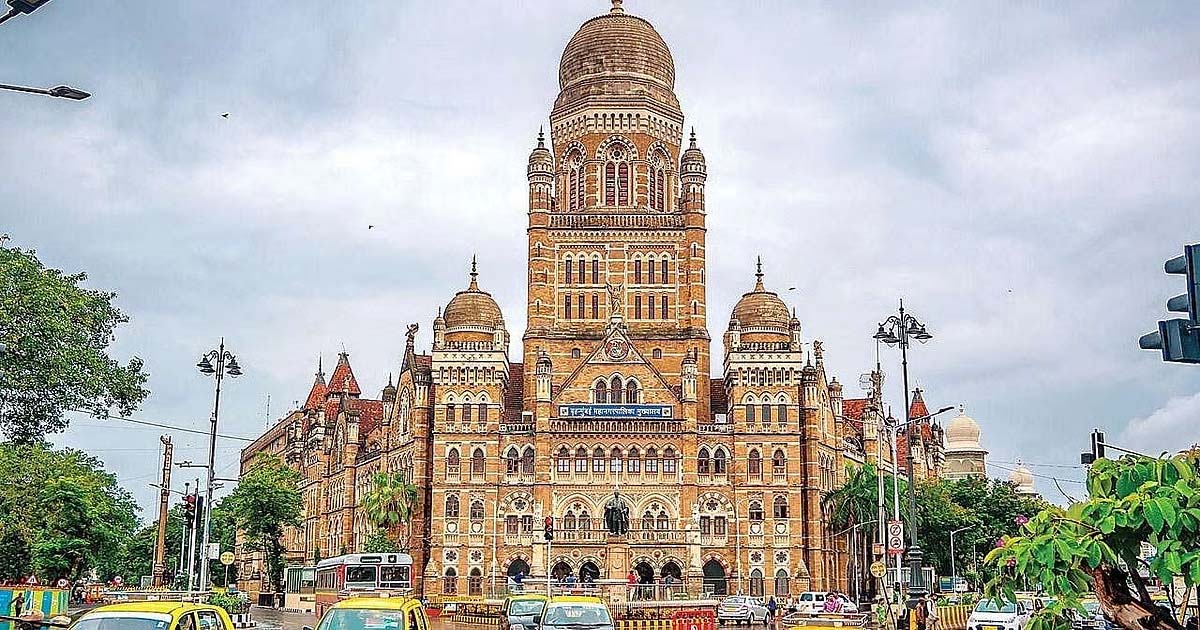Maharashtra
In email era, Maha Deputy CM Ajit Pawar sends a postcard to President
In the 21st century era of e-mail and instant messaging, Maharashtra’s Deputy Chief Minister Ajit Pawar has relied on a nearly two-century-old means of communication to draw the attention of the President Ram Nath Kovind.
The oft-maverick Ajit Pawar – nephew of Nationalist Congress Party supremo Sharad Pawar – on Friday shot off a humble postcard to the Rashtrapati Bhavan on the long-pending issue of according the “classical language” status to Marathi.
In the neatly-typed postcard, Pawar has pointed out that although the Centre had taken the decision in 2004 to confer the “classical language” status to various languages, the Marathi language has been ignored despite repeated requests.
Even a high-level committee of language experts appointed by the Centre had unanimously approved a proposal to this effect seven years ago, but there has been no further progress in the matter, he said.
Pawar exhorted the President that it was necessary to grant the status of a “classical language” to Marathi as recommended even by the Sahitya Akademi, at the earliest.
“Marathi is not only an ancient language but also the state language, used by litterateurs, intellectuals, by people of religion besides the common masses, and ranks among the major languages in the world,” he pointed out.
Citing how there many documents which provide testimony that Marathi is a “classical language”, he urged the President to accord the status on priority.
Then, Pawar personally signed the postcard in green ink, mentioned his full residential address, affixed 2 stamps of Rs 3 each with the picture of the shehnai maestro Ustad Bismillah Khan, and it was ‘posted’.
Last year, the Maharashtra Legislature passed a unanimous resolution recommending to the Centre to accord the “classical language” status to Marathi.
In anticipation of the status, Chief Minister Uddhav Thackeray in October cleared the proposal to construct a ‘Marathi Bhasha Bhavan’ on a 2,500 square metre plot in south Mumbai, which had been on the backburner for nearly eight years.
Coming up within the Jawahar Bal Bhavan complex at Marine Drive, the work on the centre is starting shortly with a completion target of 18 months, with a library, an expo centre, conference halls, etc, to promote the Marathi language.
During the tenure of Congress Chief Minister Prithviraj Chavan, a committee chaired by litterateur Rangnath Pathare had prepared a voluminous report running into 500 pages on the same issue.
The report had been forwarded to the government in July 2013, but the matter remained unresolved after the change of guard both at the Centre and the state.
The Akhil Bharatiya Marathi Sahitya Sammelan, which started in 1878, has demanded the “classical language” status for Marathi several times in the past.
Presently, there are six languages bestowed the status officially – Sanskrit, Tamil, Kannada, Telugu, Malayalam, and Odia, based on various parameters.
This paves the way for two prestigious international-level awards for scholars of eminence in the Indian “classical language”, setting up centres of excellence for studies in these languages, the University Grants Commission creating or starting certain number of Professional Chairs in such languages besides dedicating various institutions for the same to promote the study and research in such “classical languages”.
Maharashtra
Mumbai BMC Elections Samajwadi Party’s first list released but no decision on ward number 211

Mumbai: In the Mumbai municipal elections, Mahayoti and Maha Vikas Aghadi have not yet reached an electoral agreement, while the Congress Party, Samajwadi Party and AIMIM have released their first list of candidates for the municipal corporation. The Samajwadi Party has released the first list of 21 candidates, in which Zeb-un-Nisa Malik has been appointed as the candidate from 213, along with Shahzad Abrahani from 212. There is a tug of war going on in the Samajwadi Party over ward number 211, so the party has not announced its candidate for this ward. SP leader Raees Sheikh has also introduced his brother Salim Sheikh as a candidate for this ward. The Samajwadi Party has not yet taken any decision regarding the ticket in this ward, while the candidature of Raees Sheikh’s brother is also being opposed. Local women have opened a front against Raees Sheikh and have also submitted a claim for the SP candidacy. In such a situation, who will be given a candidate from 211 in the Samajwadi Party is still pending. Samajwadi Party had announced to separate from Maha Vikas Aghadi and contest the elections alone, while Uddhav and Raj Thackeray have also reached an electoral understanding. Along with this, Ajit Pawar and Sharad Pawar’s NCP is also in talks regarding an electoral understanding. If there is an electoral understanding between Ajit Pawar and Sharad Pawar, then the Congress party is ready to contest the elections alone, this has been claimed by Congress leader Jaya Witward. In the Mumbai BMC elections, every political party is trying to outdo each other, while the two brothers have formed an alliance on the issue of Marathi Manas and banners of Marathi Manas being united are also being displayed in Mumbai city.
Maharashtra
Mumbai Municipal Corporation general elections: Attendance at election training mandatory for officers and employees, criminal action will be taken against absenteeism

Mumbai: Municipal Corporation All officers and employees involved in the election process will be provided with necessary training to conduct the general elections in a transparent, fair and smooth manner. Training sessions have been organized from Monday 29th December 2025 to Monday 5th January 2026. The date, time and venue of the training have been intimated separately to all the concerned officers and employees. It is mandatory for the officers and employees to attend this training. The Municipal Corporation Administration has issued a strict warning that as per the instructions of the Hon’ble State Election Commission Maharashtra, criminal action will be taken against the officers and employees who are absent from the training or do not follow the orders. The State Election Commission, Maharashtra has announced the election schedule for the Municipal Corporation General Elections 2025-26. The voting process for the Municipal Corporation General Elections will be on Thursday 15th January 2026 from 7.30 am to 5.30 pm. Also, the counting process and results will be declared on Friday 16th January 2026 from 10 am.
All the stages related to the election process have been strictly planned to conduct the Municipal Corporation General Elections in a completely transparent, fair and smooth manner. Since it is necessary to provide necessary training to the Polling Station President (PRO), Assistant Polling Station President (APRO), Polling Officer (PO) and the employees involved in this election process, special training sessions have been organized by the Municipal Administration. This training session has been organized from Monday, December 29, 2025 to Monday, January 5, 2026. Training will be implemented in various stages during this period. The training will provide detailed guidance on the responsibilities of the election process, code of conduct, voting and counting process, legal matters and steps to be taken in emergency situations. The main objective of the election training is to make the election process credible and transparent by avoiding any kind of error, ambiguity or malpractice.
The date, time and venue of the training have been communicated to all the concerned officers and employees through separate appointment orders. It is mandatory for all officers and employees to attend this training. Absence will not be accepted for any reason. As per the directions of the State Election Commission, the Municipal Corporation Administration is giving a strict warning that officers and employees who are absent from the training session, do not comply with the orders or fail to perform their duties in the election process, will be subject to disciplinary action including criminal proceedings under Section 28 (a) of the Mumbai Municipal Corporation Act, 1888. Please take this matter very seriously and attend the training and discharge your duties honestly.
Crime
मुंबई के पायधोनी में करोड़ों रुपये के ड्रग्स के साथ 9 आरोपी गिरफ्तार, इनमें 3 महिला तस्कर भी शामिल

मुंबई : ड्रग्स के खिलाफ एक बड़े ऑपरेशन में, पायधोनी पुलिस ने 1 करोड़ रुपये से ज़्यादा की हेरोइन ज़ब्त करने और दो पुरुष और दो महिला ड्रग पेडलर को गिरफ्तार करने का दावा किया है। जानकारी के मुताबिक, 16 दिसंबर को दोपहर 2:30 बजे पायधोनी पुलिस स्टेशन की सीमा में पी.डी.मेलो रोड पर एक सर्च के दौरान, 37 साल के राम नटवर ठक्कर और 27 साल के वसीम सैयद के पास से 326 ग्राम से ज़्यादा हेरोइन बरामद की गई। आरोपियों को गिरफ्तार कर लिया गया और उन पर एनडीपीएस एक्ट के तहत मामला दर्ज किया गया। जांच के दौरान, आरोपियों ने बताया कि वे ड्रग्स कहां से लाए थे। उसके बाद, पुलिस ने 30 साल की रुबीना सैयद को गिरफ्तार किया। उसने बताया कि वह शबनम शेख के संपर्क में थी। उसे राजस्थान के अजमेर से गिरफ्तार किया गया। जब यह पता लगाने के लिए जांच की गई कि इन दोनों महिलाओं ने ड्रग्स कहां से हासिल किए थे, तो शबनम शेख को ड्रग्स बेचने वाले व्यक्ति, मुस्कान समीउल्लाह शेख 19 साल को मस्जिद बंदर इलाके से गिरफ्तार किया गया। पुलिस को जानकारी मिली थी कि अब्दुल कादिर शेख और मेहरबान अली मुस्कान को ड्रग्स सप्लाई करने आ रहे हैं, जिस पर पुलिस ने जाल बिछाकर अब्दुल कादिर को गिरफ्तार कर लिया। उसके पास से ड्रग्स भी बरामद हुए। जोगेश्वरी में उसके घर की तलाशी के दौरान नवजीत गुलाबी खान, शारिक सलमानी, समद गुलाबी के पास हेरोइन मिली। उनके पास से कुल 33 करोड़ से ज़्यादा कीमत के ड्रग्स ज़ब्त किए गए। इस ऑपरेशन में पुलिस ने तीन महिलाओं और 6 पुरुषों को गिरफ्तार किया और करोड़ों रुपये के ड्रग्स ज़ब्त किए। यह ऑपरेशन मुंबई पुलिस कमिश्नर देविन भारती के निर्देश पर डीसीपी विजय सागरे ने किया।
-

 Crime3 years ago
Crime3 years agoClass 10 student jumps to death in Jaipur
-

 Maharashtra1 year ago
Maharashtra1 year agoMumbai Local Train Update: Central Railway’s New Timetable Comes Into Effect; Check Full List Of Revised Timings & Stations
-

 Maharashtra1 year ago
Maharashtra1 year agoMumbai To Go Toll-Free Tonight! Maharashtra Govt Announces Complete Toll Waiver For Light Motor Vehicles At All 5 Entry Points Of City
-

 Maharashtra1 year ago
Maharashtra1 year agoFalse photo of Imtiaz Jaleel’s rally, exposing the fooling conspiracy
-

 National News1 year ago
National News1 year agoMinistry of Railways rolls out Special Drive 4.0 with focus on digitisation, cleanliness, inclusiveness and grievance redressal
-

 Maharashtra1 year ago
Maharashtra1 year agoMaharashtra Elections 2024: Mumbai Metro & BEST Services Extended Till Midnight On Voting Day
-

 National News1 year ago
National News1 year agoJ&K: 4 Jawans Killed, 28 Injured After Bus Carrying BSF Personnel For Poll Duty Falls Into Gorge In Budgam; Terrifying Visuals Surface
-

 Crime1 year ago
Crime1 year agoBaba Siddique Murder: Mumbai Police Unable To Get Lawrence Bishnoi Custody Due To Home Ministry Order, Says Report












